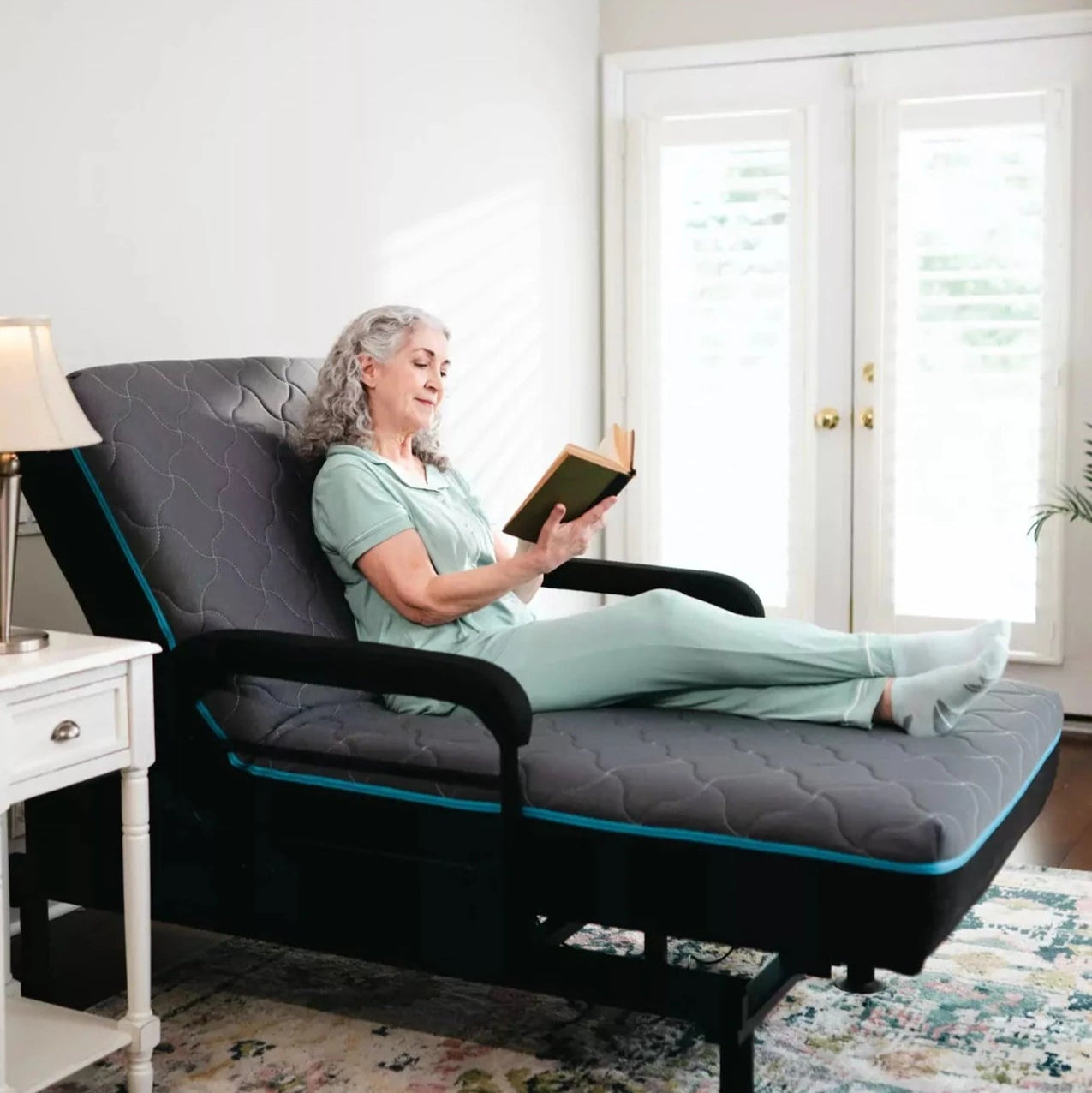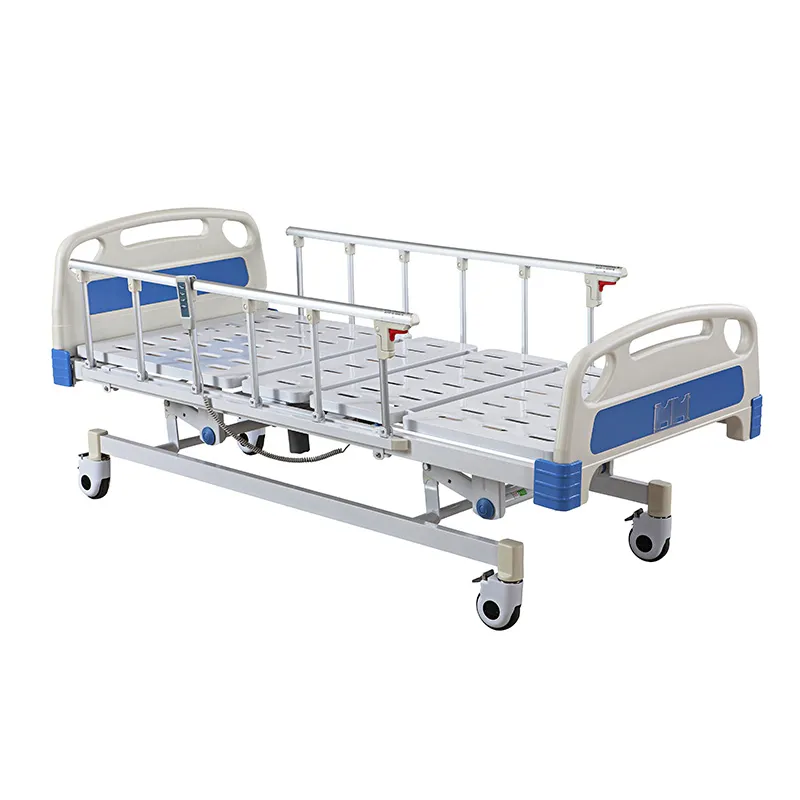Hospital Beds For Home Use for Beginners
Hospital Beds For Home Use for Beginners
Blog Article
The Ultimate Guide To Hospital Beds For Home Use
Table of ContentsThe smart Trick of Hospital Beds For Home Use That Nobody is Talking About4 Easy Facts About Hospital Beds For Home Use ExplainedHospital Beds For Home Use Things To Know Before You Get ThisAbout Hospital Beds For Home UseThe Basic Principles Of Hospital Beds For Home Use Some Ideas on Hospital Beds For Home Use You Need To KnowAll About Hospital Beds For Home Use
There are 3 main types of medical facility beds: guidebook, semi-electric, and fully-electric. Nevertheless, even more kinds of clinical beds exist and they are listed here. These beds make use of hand cranks to adjust the bed's height and elevate and lower the head and the foot. Hand cranks are normally located at the foot of the bed and call for a person that is physically efficient in operating.
Semi-electric beds have an electrical motor to increase and decrease the head and foot portions of the bed. Clients and caretakers change the placing by pressing buttons making use of a hand necklace. The elevation of the bed is adjusted manually with a hand crank. Full-electric beds have an electric motor that can elevate the head and foot sections of the bed as well as the entire height and positioning of the bed.
An Unbiased View of Hospital Beds For Home Use
Some designs can also relocate right into even more positions, such as the Trendelenburg (tilt) setting. There are a number of sorts of health center beds, each made to meet certain person needs. Below are some common kinds: This is the most common type of hospital bed, created for basic clinical use. It has a guidebook or electrically adjustable headrest, foot rest, and elevation.
Lower to the ground than a standard bed. This kind of bed is created for bigger people, with a bigger framework and higher weight ability than a typical bed. This sort of bed is created especially for kids, with smaller dimensions than a basic bed. Unique attributes such as complete length side rails and anime style.
This type of bed is created for seriously sick patients who need open tracking and specialized clinical equipment such as ventilators and infusion pumps. This sort of bed is developed for use throughout labor and distribution, with adjustable positions and functions to support the mom and baby during the birth process.
The smart Trick of Hospital Beds For Home Use That Nobody is Talking About
Several feature and the accessories perform expanding grip to different components of the vertebra and the extremities without moving the human body. These are just a few instances of the types of hospital beds readily available. The specific kind of bed used will depend upon the client's problem, clinical demands, and other elements.
Below is the important things you need to understand. A one-function medical facility bed is a medical bed that permits an individual to relocate just the head or foot area up or down. A 2 feature healthcare facility bed normally describes a kind of medical bed that has two flexible features to aid clients in healthcare facilities or care centers.

Hospital Beds For Home Use Can Be Fun For Anyone
A 7-function useful content ICU bed is a sort of clinical bed that provides several adjustable functions to sustain seriously sick people in a critical care unit (ICU) (hospital beds for home use). The seven features normally include: Backrest modification: The back-rest can be gotten used to numerous angles to help the individual stay up or rest comfortably
Elevation modification: The bed can be elevated or decreased to make it less complicated for people to enter and out of bed, and for caretakers to provide treatment. Trendelenburg placement: The entire bed can be slanted to advertise blood flow and blood circulation in the body. Reverse Trendelenburg setting: The bed can also be tilted in the opposite instructions to promote blood circulation and circulation in the upper body.
While more affordable than electric versions, these beds need physical effort for adjustments. The main advantages of manual beds are their affordability and dependability, as they do not count on electricity. However, the demand for hand-operated effort can be a restriction in situations where quick modifications are essential or where caretakers deal with physical obstacles.
Hospital Beds For Home Use - An Overview
They are appropriate for individuals that require marginal rearranging for convenience or medical needs. Semi-electric healthcare facility beds provide a balance of handbook and electric controls. The head and foot areas are normally readjusted with electrical controls, while the height is adjusted manually. These beds offer an ideal middle ground between handbook and totally electric choices, offering convenience of usage without the complete price Recommended Reading of electrical designs.
Semi-electric beds are appropriate for clients that require modest modifications to the head and foot areas but can handle without regular height modifications. This makes them a cost-effective option for those seeking convenience and comfort without the need for constant repositioning. Totally electric medical facility beds include electric controls for smooth modifications to the elevation, head, and foot areas.
Specialty health center beds, such as ICU beds, long-term care beds, and bariatric beds, are meticulously designed to address particular medical demands. These beds use tailored look after varied person teams, improving both end results and comfort. In the adhering to sections, we will explore the main kinds of specialized healthcare facility beds, describing their specific advantages and applications.
With years of experience in manufacturing electric linear actuators - hospital beds for home use and close cooperation with the healthcare sector, TiMOTION is well-positioned to offer trustworthy healthcare remedies. Our up and down incorporated company takes care of every step of the manufacturing procedure, from layout to actuator assembly, guaranteeing we supply remarkable worth and tailored options tailored to your particular requirements
Unknown Facts About Hospital Beds For Home Use

To discover even more about incorporating these innovations right into your products, contact us today. More analysis:.
Data is sourced from the Medicare Expense Record. Accessed January 2025. Temporary severe treatment health centers have the greatest average number of beds at 187. They are the most typical kind of medical facility in the U.S. and compose greater than 50% of U.S. health centers. Children's health centers have 178 beds generally and VA medical facilities average 175 beds.

The 2-Minute Rule for Hospital Beds For Home Use
A healthcare facility bed is a bed created particularly for clinical objectives. It is not just a location for people to rest, but likewise a platform for clinical procedures. Unlike regular home beds, hospital beds usually have adjustable attributes, which can help with clinical team to make different changes according to the requirements of individuals, such as transforming the height, disposition, and assistance angle of the back and legs of the bed.
Report this page